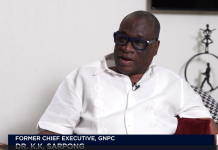Social media has become an integral part of our daily lives, especially for young adults. While it offers numerous benefits, such as staying connected with friends and family, sharing experiences, and accessing information, excessive social media use can have detrimental effects on mental health.
Research suggests that excessive social media use is linked to increased symptoms of depression, anxiety, and loneliness in young adults. Social media platforms showcase the highlight reels of others’ lives, creating unrealistic comparisons and a distorted view of reality. This can lead to feelings of inadequacy, low self-esteem, and a sense of missing out (FOMO).
Moreover, social media can disrupt sleep patterns, as the blue light emitted from screens interferes with the body’s natural sleep-wake cycle. Poor sleep quality is a significant risk factor for mental health issues, including depression and anxiety.
Furthermore, cyberbullying, online harassment, and the pressure to present a perfect online image can all take a toll on mental health. The constant need for validation and the fear of missing out can lead to a vicious cycle of anxiety and stress.
To mitigate the negative effects of social media on mental health, young adults can take steps to use social media responsibly. Set boundaries, limit screen time, and engage in offline activities. Follow accounts that promote positivity, self-care, and mental health awareness. Remember that social media is only a curated version of reality, and it’s essential to focus on real-life connections and self-care.
By being mindful of social media use and taking proactive steps, young adults can promote healthy social media habits and protect their mental well-being.























































![[FREE FREE MONEY] Predict and Win a Guaranteed GH¢200 From Us EVERY WEEK](https://wordpress.ghanatalksradio.com/wp-content/uploads/2022/02/Predict-and-Win-Final-09-03-2021-218x150.jpg)
![[Predict & Win – 8th/Oct.] WIN A Guaranteed ¢200 From Us This Week](https://wordpress.ghanatalksradio.com/wp-content/uploads/2021/10/maxresdefault-16-218x150.jpg)
![[Predict & Win – 2nd] WIN A Guaranteed ¢200 From Us This Week](https://wordpress.ghanatalksradio.com/wp-content/uploads/2021/09/maxresdefault-50-218x150.jpg)
![[Predict & Win – 25th] WIN A Guaranteed ¢200 From Us This Week](https://wordpress.ghanatalksradio.com/wp-content/uploads/2021/09/maxresdefault-36-218x150.jpg)
![[Predict & Win – 18th] WIN A Guaranteed ¢200 From Us This Week](https://wordpress.ghanatalksradio.com/wp-content/uploads/2021/09/maxresdefault-23-218x150.jpg)











![[National cathedral] See full list of churches that have contributed since 2018](https://wordpress.ghanatalksradio.com/wp-content/uploads/2020/09/Ghana-National-Cathedral-GhanaTalksRadio-100x70.jpg)


